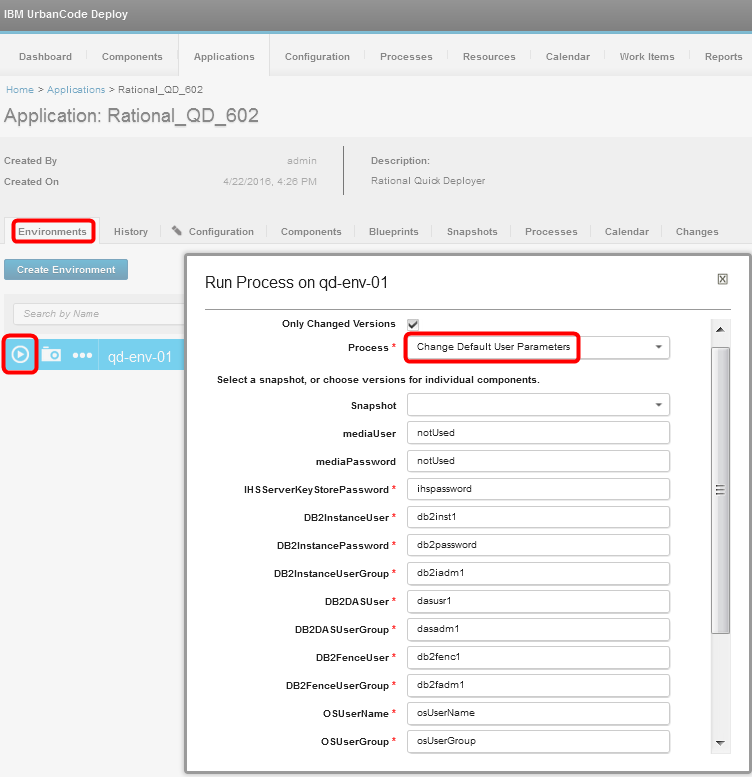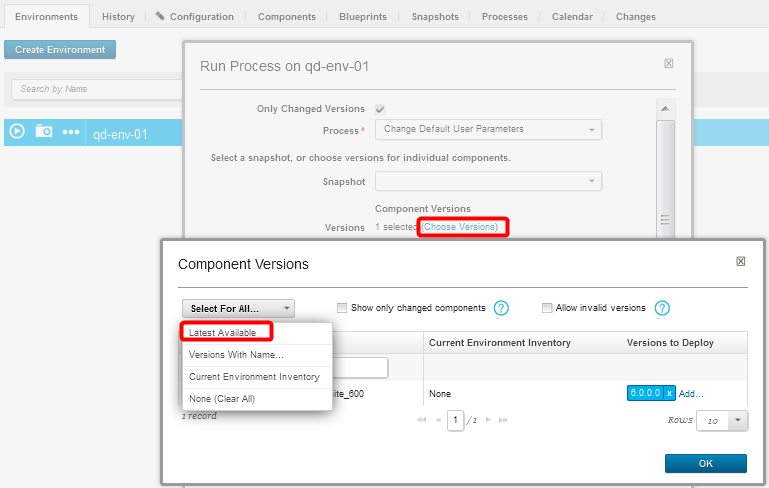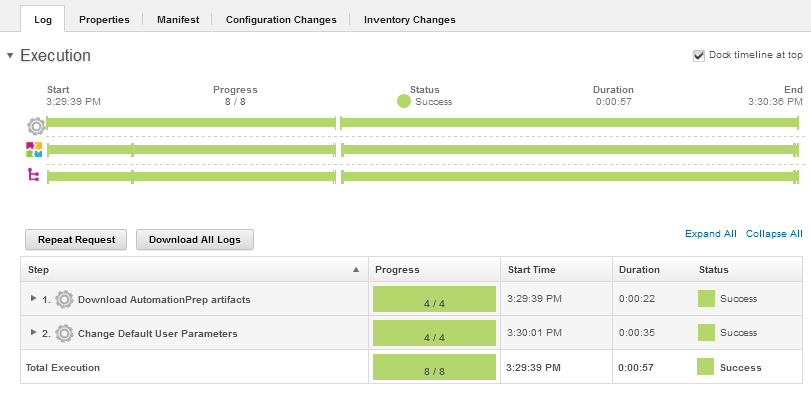About cookies on this site Our websites require some cookies to function properly (required). In addition, other cookies may be used with your consent to analyze site usage, improve the user experience and for advertising. For more information, please review your options. By visiting our website, you agree to our processing of information as described in IBM’sprivacy statement. To provide a smooth navigation, your cookie preferences will be shared across the IBM web domains listed here.
r18 - 2017-06-27 - 17:36:04 - Main.ktessierYou are here: TWiki >  Deployment Web > DeploymentInstallingUpgradingAndMigrating > IBMQuickDeployer > IBMQuickDeployerSetupAndRun > IBMQuickDeployerChangeDefaultUserParametersOld
Deployment Web > DeploymentInstallingUpgradingAndMigrating > IBMQuickDeployer > IBMQuickDeployerSetupAndRun > IBMQuickDeployerChangeDefaultUserParametersOld
IBM Quick Deployer change default user parameters 
Authors: ThomasPiccoli, KennethThomson, JenniferLiu, KenTessier, ClareCartyBuild basis: CLM 6.0, CLM 6.0.x, CE 6.0.x
Page contents
Prior to running the UCD Install Applications application process you must run the Change Default User Parameters application process.
Running the Change Default User Parameters application process allows you to change the default user / password combinations to match your system.
Once you know the user / password combinations for your system you can permanently change the default values by following the instruction in the Modify Change Default User Parameters Defaults wiki page.
Change default user parameters
- Open application Rational_QD_60x and run process Change Default User Parameters on the target environment.

- If you fixed the component versions on the process you will not be prompted to choose versions. If offered to choose the component versions, then select Latest Available.

- Modify the process property default values to match your System.
DB2 username restrictions / rules are highlighted below, make sure you follow these rules when specifying all of the DB2 user names:
– Must be lowercase letters (a-z), numbers (0-9), and the underscore character(_)
– Must not start with a number or underscore
– Cannot be longer than eight characters
– Cannot begin with IBM, SYS, SQL, or a number
– Cannot be USERS, ADMINS, GUESTS, PUBLIC or LOCAL
A full up to date set of restrictions can be found at DB2 Version 10.5 - Installing DB2 Servers (page 42 for user ID restrictions)
The properties are as follows- mediaUser : user that accesses an http media server
Default : not used - mediaPassword : password for mediaUser
Default : not used - IHSServerKeyStorePassword : - password for the IHS certificate keystore
Default : ihspassword - DB2InstanceUser : this is the DB2 instance user (several databases are stored in an instance)
Default : db2inst1 - DB2InstancePassword : password for DB2InstanceUser
Default : db2password - DB2InstanceUserGroup : group to contain the DB2InstanceUser (will be created)
Default : db2iadm1 - DB2DASUser : this is the DB2 administration server user (refer to DB2InstanceUser rules)
Default : dasusr1 - DB2DASUserGroup : group to contain the DB2DASUser (will be created)
Default : dasadm1 - DB2FenceUser : this is the DB2 fenced user (refer to DB2InstanceUser rules)
Default : db2fenc1 - DB2FenceUserGroup : group to contain the DB2FenceUser (will be created)
Default : db2fadm1 - OSUserName : user used to install and run IM, WAS, IHS & jazzApps
Default : osusername - OSUserGroup : group to contain the OSUserName
Default : osusergroup - OSUserPassword : password for OSUserName
Default : osuserpassword
- mediaUser : user that accesses an http media server
- Click on Submit and wait for the process to run to completion

Miscellaneous
Notes:
- Throughout the IBM Quick Deployer wiki the screen captures are for reference only.
In some cases if the functionality they display has not changed in the latest release they will be from a previous release
Related topics:
External links:
Additional contributors: MichelleCrane, NathanBak, ChristianLopez
-
 Deployment web
Deployment web
-
 Planning and design
Planning and design
-
 Installing and upgrading
Installing and upgrading
-
 Migrating and evolving
Migrating and evolving
-
 Integrating
Integrating
-
 Administering
Administering
-
 Monitoring
Monitoring
-
 Troubleshooting
Troubleshooting
Status icon key:
-
 To do
To do
-
 Under construction
Under construction
-
 New
New
-
 Updated
Updated
-
 Constant change
Constant change
- None - stable page
- Smaller versions of status icons for inline text:
-





Contributions are governed by our Terms of Use. Please read the following disclaimer.
Dashboards and work items are no longer publicly available, so some links may be invalid. We now provide similar information through other means. Learn more here.